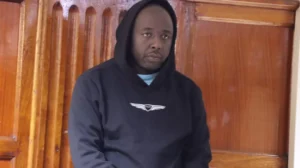The Kenya National Commission on Human Rights has confirmed that eight people lost their lives during the June 25 demonstrations held across the country. These protests were organized to mark the first anniversary of the anti-Finance Bill 2024 demonstrations.
According to the statement released by KNCHR Vice Chairperson Dr. Raymond Nyeris, the deaths happened in six different counties. Machakos and Makueni recorded two deaths each, while Nakuru, Kiambu, Uasin Gishu, and Nyandarua each reported one death.
These tragic events have once again raised concern about the government’s handling of protests and the safety of citizens during such events.
Besides the lives lost, the commission reported that over 400 people were injured during the protests. These included ordinary demonstrators, police officers, and even journalists. Although many of the injured were treated and discharged, 83 were referred to other health facilities for specialized care due to the seriousness of their injuries.
The numbers show the scale of violence and chaos that marked this year’s protests, painting a worrying picture of the country’s state of human rights.
The commission also noted that 61 people were arrested and detained in different police stations across the country, most of them in Nairobi. This adds to the rising fear that the protests are being met with aggressive policing, rather than proper engagement and dialogue.
What makes the situation more worrying is the commission’s confirmation that criminal groups had joined the protests, especially in major towns like Eldoret, Mombasa, Nairobi, Nakuru, Nyeri, Kajiado, and Kisumu.
These groups, described as “hired goons,” were reported to have engaged in acts of violence, looting, and destruction of property. Their presence not only disrupted peaceful protests but also created confusion and fear among the public.
In the same statement, KNCHR strongly criticized the Communications Authority of Kenya for directing media stations to stop live coverage of the protests.
According to the commission, this move violated the public’s right to access important information. Blocking live broadcasts in such moments of national importance only serves to raise suspicion and silence critical voices, instead of promoting transparency.
The commission made it clear that Kenyans have the right to know what is happening in their country, especially during events that directly affect their lives and safety.
KNCHR has promised to keep monitoring the events and sharing updates to ensure that human rights are protected. Their role remains crucial as the country navigates a tense political period marked by widespread dissatisfaction with government decisions.
The protests may have been meant to pass a message, but the violence, loss of life, and attempts to suppress information have brought to light deeper issues that need urgent attention.





















Add Comment